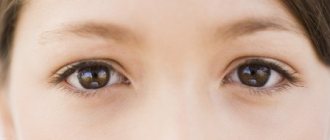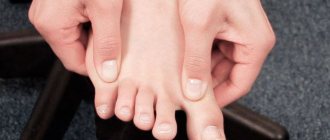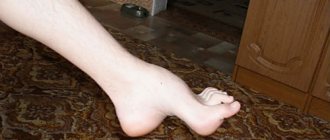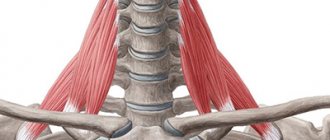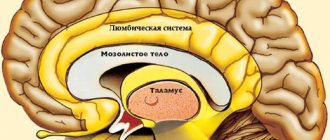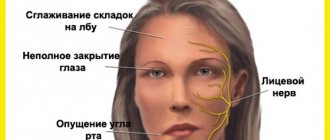Good concentration and memory are integral factors in any effective activity and full communication with others. That is why loss of concentration can cause a lot of difficulties for a person and reduce his quality of life. Unfortunately, in modern society there are more and more people with problems such as the inability to concentrate on a task and difficulty remembering new information.
The main causes of loss of concentration and memory
Conventionally, they can be divided into 2 categories. The first includes those that are voluntarily or unwittingly “provoked” by the person himself and those that are caused by a number of diseases.
Causes associated with poor lifestyle
Mental fatigue due to a large amount of information. Daily, long hours of “surfing” on the Internet is one of the main causes of mental stress.
This is interesting! If you are told that multitasking is very effective and you should strive for it, don’t believe it! It is a myth. It has already been scientifically proven that a person cannot do several things at the same time, because his brain begins to “program malfunctions”, like a regular computer with a processor overloaded with tasks.
Chronic stress and emotional burnout. One of the main reasons for decreased concentration, both in children and adults.
Abuse of coffee. In small quantities, coffee stimulates the brain, but its excess, on the contrary, leads to increased fatigue, inability to concentrate and memory impairment.
Long-term, uncontrolled use of medications that correct the activity of the nervous system: antidepressants, tranquilizers, sedatives, barbiturates, etc.
Alcohol, nicotine, drugs. Such substances have the most negative effect on the functioning of the brain, even to the point of destroying its cells.
Violation of the regime. During sleep, nerve cells not only regenerate, but also form new neural connections. Without enough sleep day after day, you force your brain to work “to wear out”, which has the most negative effect on concentration.
Poor nutrition. Convenience foods, cheap food of synthetic origin, “chemical” drinks and sweets - all of this contains substances harmful to health, many of which tend to accumulate in the body. Gradually, they begin to negatively affect memory and the ability to concentrate on a specific task.
Attention disorders: types, classification, methods of correcting disorders in children
Attention disorder in children often goes hand in hand with hyperactivity. Doctors diagnose the children with ADHD. Also in the child’s medical record, the psychiatrist may write: hyperkinetic disorder or hyperdynamic syndrome.
ADHD is a mental disorder caused by neurological problems. Formed at an early age. Manifestations may be expressed in the inability to control one’s actions or sit in one place. Guys:
- overly active, they cannot be captivated by the game;
- are constantly on the move;
- throw things around, play around, show absent-mindedness, disinhibition;
- They are capricious, can be aggressive and intolerant of failures.
Children who suffer from attention deficit hyperactivity disorder have increased muscle tone in infancy. They have difficulty falling asleep, their sleep can be described as intermittent, with frequent awakenings. There is increased sensitivity to external stimuli, extraneous noise, sharp sounds, and unusual surroundings.
Children diagnosed with ADHD are characterized by impulsiveness, obsession, and do not know how to obey rules. For example, during class they are able to get up without asking and go do what interests them - see what’s outside the window or take a peer’s pencil case and start looking at it. Teachers may interrupt.
Such features make it difficult to adapt to the team and society, and also cause difficulties in learning. At the same time, the intelligence of children diagnosed with ADHD is not impaired. Children are forgetful, have difficulty perceiving information, and find it difficult to concentrate. Schoolchildren with signs of the disorder often have dysgraphia, dyslexia, and dyscalculia. Often, the management of an educational institution “asks” parents to pick up their child. In severe cases, they are forced to study in correctional classes/schools or at home.
As an adult, a person may complain that it is difficult for him to carry out daily duties: prepare food, clean the apartment, put things in their places. They are characterized by increased forgetfulness and absent-mindedness. Such people have poor control over their budget and are prone to thoughtless spending. They have high impulsiveness. They cannot concentrate at work, complete a report, or analyze information.
If attention disorder is caused by somatic problems, neurological dysfunctions, patients may experience the following symptoms:
- the appearance of fatigue even after a short strain of attention and memory;
- rapid loss of interest in activities;
- drowsiness;
- heaviness in the head;
- restlessness.
With organic pathologies of the brain, children exhibit an inability to simultaneously concentrate on several objects and topics. Patients cannot remember important conditions or take into account changing circumstances. With brain damage, passive attention dominates active attention. They are constantly distracted, unable to notice obvious things, and answer questions inappropriately.
With attention disorders associated with epilepsy, patients:
- unable to quickly switch from one object to another;
- describe a specific topic in detail, as if they “get stuck” in it;
- have difficulty changing tasks and goals;
- often repeat the same phrases and actions.
If a child develops schizophrenia, hypochondria, or depression, he concentrates on a specific aspect of life, ignoring others. Often such children seem to be “in a shell”, lose interest in ordinary everyday moments, show fearfulness, and focus on unimportant objects. Example: carefully look at the drawings on the walls instead of answering a greeting.
Reasons of a physiological nature
- Lack of vitamins. A lack of vital substances in the body (especially vitamin D) leads to a deterioration in the synthesis of neurotransmitters and disruption of the nervous system. As a result, a person becomes inattentive and absent-minded.
- Some cerebrovascular diseases (for example, multiple sclerosis, hypertension, Alzheimer's disease).
- Hormonal disorders associated with the thyroid gland, adrenal glands or diabetes.
- Metabolic disease.
- Anemia.
- Brain injuries.
- Cervical osteochondrosis (blood circulation in the vessels of the brain worsens).
It is very important to find out the root cause of the problem, because this is the only way to effectively solve it or at least improve the situation.
Causes of attention deficit disorder
Despite a century-long history of observations, attention deficit disorder is still not well understood by scientists. Science does not yet know the exact reasons for its development in children. However, scientists put forward a number of theories that one way or another explain the occurrence of this disease. Here are the main causes of ADD:
- heredity - observational statistics have proven that the likelihood of the syndrome in children whose parents also had a history of it is several times higher;
- complex course of infectious diseases and other pathologies during pregnancy;
- abuse of alcohol, nicotine and caffeine during pregnancy can lead to irreversible changes in the fetal brain;
- premature birth;
- Rh conflict between the blood of mother and child;
- birth injuries, as well as head injuries and severe infectious diseases in a child in early infancy.
Some experts add other factors to this list:
- disorders of the thyroid gland;
- excessive consumption of sugar and foods with harmful food additives;
- lead poisoning;
- stressful living conditions (frequent moves, parental divorce);
- Child's passion for gadgets and TV.
Symptoms of loss of concentration and memory loss
The most obvious sign is that a person is very bad at remembering information that is not directly related to his personal experiences or problems. He may forget entire episodes from the past, or confuse the past with the present, and “get lost” in the days of the week and even months.
In a conversation, he often forgets some words, and it is difficult for him to clearly formulate a specific thought. When leaving home, such people often worry because they cannot remember whether the water, electricity, gas, household appliances, etc. are turned off.
In addition, loss of concentration and memory is often accompanied by:
- a feeling of absent-mindedness, lack of understanding of what and how to do, even if the task at hand is not very difficult;
- increased suspiciousness;
- feeling of confusion;
- slowness;
- constant feeling of fatigue;
- headaches;
- problems with vision and hearing;
- cardiac arrhythmia.
During work, it is difficult for such a person to concentrate on the task, as a result of which he begins to do many secondary things in parallel. The same thing is observed in everyday life. He is greatly distracted by extraneous conversations, music, and background noise. Everything is done slowly.
What processes occur in the brain of a child with ADD?
Since ADD is a neurological disorder, its manifestations can be seen not only externally, but also internally - in the brain. Studies have shown that children with this disease have impaired concentrations of certain neurotransmitters - biochemical substances that are responsible for transmitting impulses between different parts of the brain and nerve cells of the whole body.
You've probably heard of dopamine, adrenaline, serotonin or glycine - these neurotransmitters are involved in many chemical processes that determine our mood and behavior. For example, dopamine is responsible for our brain's reward system, producing feelings of pleasure, satisfaction and anticipation, which are beneficial for learning and motivation.
Research in the field of ADD has shown that inattentive but nonimpulsive children who are prone to absent-mindedness have decreased dopamine levels. This occurs due to disruption of the cortex of the frontal lobes. Loss of energy, lack of motivation and self-obsession are observed against the background of decreased activity in the cerebellum. Hot temper, anxiety and dark thoughts in children with attention deficit disorder indicate disturbances in the functioning of the temporal lobes.
Having these facts, it is possible to influence the level of neurotransmitters with medication, thus correcting the functioning of the brain.
Ways to solve the problem
The best option is to visit a good neurologist. Such a specialist will help you find out the real reasons for loss of concentration and suggest ways to eliminate them. It is also possible to correct the situation on your own, but only on the condition that we are not talking about any disease - here you cannot do without a specialist.
To strengthen your memory and increase concentration you need to:
- Adhere to the correct daily routine.
- Eat well.
- Drink enough water.
- Spend as little time as possible at the computer, with gadgets or in front of the TV.
- Take medications that improve concentration and memory. For example, Esprico vitamins are considered one of the best, containing 2 types of Omega-3, Omega-6, magnesium and zinc (by the way, they are available in our online pharmacy).
- If possible, avoid alcohol, smoking or using drugs.
- Be sure to play sports!
- Be in the fresh air for at least 1.5-2 hours a day.
- Every day, learn poetry or a foreign language by heart, play logic games.
At the same time, certain “exercises” should be performed. So, you should try to do ordinary things in an unusual way. For example, walking backwards for a while (you can do it at home, when no one sees you), brushing your teeth and combing your hair with your left hand if you are right-handed (and vice versa), going to work on a different route, etc. All this will give a powerful an impetus for the formation of new neural connections.
And remember that it is much easier to prevent the problem with the same lifestyle adjustments and regular intake of vitamins than to get rid of its consequences.
Types of attention
There are two types of attention that depend on time:
- The immediate type of attention, i.e. quick concentration, allows you to instantly respond to the surrounding reality, analyze information and, accordingly, concentrate on one task or event.
- A slow type of attention is necessary for a person during training or work. This ability makes it possible to slowly think about a problem or absorb information during the educational process.
The ability to concentrate increases until the age of 25 and remains stable until the age of 45 and can even improve. After 50 years, gradual degradation begins. And this leads many people to start taking medications to treat concentration problems. Such medications belong to the nootropic type. Note that mental activity is also influenced by lifestyle (addictions), the development of tumors and chronic diseases.
SYMPTOMATICS
It is important for parents to become familiar with the signs of ADHD and be able to distinguish it from spoilage. Symptoms are divided into 3 groups and are presented in the following table.
| Inattention | Hyperactivity | Impulsiveness |
| Inability to concentrate on listening to explanations or completing tasks. | Impatience. | The child is impatient (yells out the answer before the question is asked) |
| Forgetfulness. | A large number of movements, mobility. Even when the baby is sitting, he swings his leg or moves his hands. | They cannot wait, they want their desires to be fulfilled “here and now.” |
| Increased distractibility. | Excessive sociability. | They interrupt. |
| Numerous errors due to carelessness. | These kids are always on the move. | |
| Such children often lose and forget things. |
So, an inattentive child cannot concentrate on completing a task, is constantly distracted by external noises, often does not complete tasks, and is disorganized. Most often, this type is characteristic of girls with developed imagination.
A hyperactive child is restless, constantly makes noise and screams, cannot fully rest, is constantly on the move (walks, turns, spins), and is unable to restrain his emotions.
An impulsive child is talkative, impatient, it is impossible for him to wait his turn, and very often he interferes with other children.
Sometimes a combined type is observed - the presence, for example, of inattention and impulsiveness at the same time. Most often this option occurs in boys. Parents can detect these symptoms in their babies, but they must remember that only a medical specialist can make a diagnosis.
SYMPTOMATICS BY AGE
Various signs of hyperactivity may manifest differently depending on the age of the baby. So, in children under one year old it should be noted:
- loudness;
- sleep problems;
- strong motor reaction;
- excessive sensitivity to noise and light;
- speech delay may occur.
However, it should be remembered that the whims of the baby can be caused by cutting teeth, colic or other reasons.
At 2-3 years of age, hyperactivity reveals itself with the following manifestations:
- problems with fine motor skills;
- restlessness;
- The child makes a lot of unnecessary movements.
For older preschoolers, alarm bells include reluctance to go to bed, whims, disobedience, and inability to do one thing.
DIFFERENCE FROM SPOILING
Parents should remember that each baby has a certain type of temperament, which determines his mobility and other behavioral characteristics. Therefore, a child can be active and mobile when meeting with friends, when buying toys or while playing with parents. This is normal and does not indicate problems. But if he constantly runs and fusses, then we can talk about hyperactivity.
Every child can be inattentive or overly excited from time to time, but this does not mean that he has ADHD - the symptoms must be observed for at least six months. Most often, the syndrome manifests itself before the age of 7 years, gradually leading to conflicts in the family and difficulties in communicating with peers.
TIPS FOR PARENTS
Hyperactivity in children and attention deficit disorder are a serious test for mothers and fathers who are very tired of the child’s mischievous behavior, in their opinion. Psychologists recommend that parents adhere to the following simple rules:
- Instead of constant criticism - positivity. Children with ADHD are very sensitive, especially since they often have to listen to statements with the particle “not”: “don’t scream”, “don’t run”. Instead, comments should be made in a positive manner. Not “don’t run,” but “let’s play a board game together.”
- Praise is the best motivation. A child can and should be praised even for the most minor successes. Or at least for the effort.
- Communication is equally important. It is necessary to ask the child about how his day went, what he did, what new things he learned. The interest of parents is very important for the child.
- Scheduling. A preschooler will feel much calmer if he has specific tasks that need to be completed at a specific time. This will help in the future at school; a proper work and rest schedule will allow the child to rest after classes and only then begin homework.
- When your baby is nervous or excited, you need to help him calm down with calm games, classical music, and water treatments.
- For hyperexcitability, soothing baths with lavender or chamomile will also help.
You should also reduce the number of distractions, which will help you focus on completing tasks. You can achieve this like this:
- Break the task into a series of small ones, be sure to take a break between them.
- Within, for example, 5-10 minutes, the child completes the task without being distracted. Afterwards there is a break. To maintain interest, you can set a timer for this time - until the bell rings, you have to work. The main thing is to correctly set the time period during which the baby can maintain attention.
- Control. Parents should not “stand over their souls” and check every action. But they can check the work itself, be sure to praise their son or daughter for their diligence.
It is important not to ignore the problem, attributing the child’s inattention or hyperactivity to an age-related crisis or a simple whim. The sooner you start treatment for lack of attention, the faster you will be able to achieve results, and the baby and parents will be happier.
